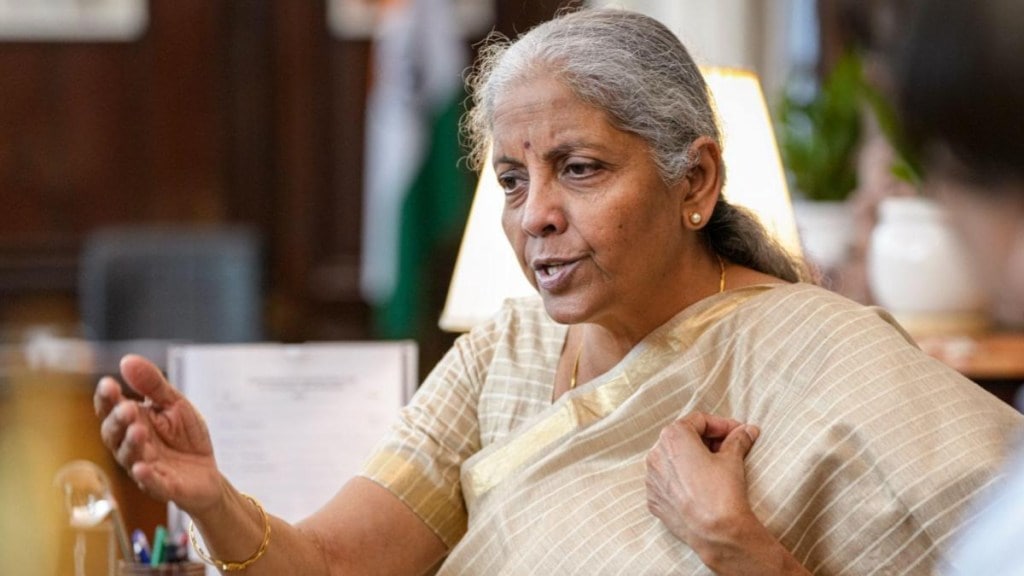Corporate India has now lost its often-repeated excuse of having to deal with uncertain demand, as the sweeping Goods and Services Tax (GST) cuts for more than 375 items will result in an enduring consumption binge, finance minister Nirmala Sitharaman has said.
In an exclusive interview with FE, the minister added that she will hold a review meeting with public sector banks this week, where the issue of inadequate transmission of monetary easing, as reflected in a recent rise in average lending rate, will be discussed.
GST reforms to spur demand and investment
Stating that the GST reforms will have a pronounced effect not only on consumption and capital asset creation, but also fiscal stability, she said: “At some point in time, I heard some of them (from India Inc) say that they are not able to see demand going up, and that unless demand convincingly goes up, they won’t be able to invest and take a downside risk.
“But now with these GST reforms, I would think even that question should be answered. Demand pick-up will be obvious now, so hopefully they should come out (and invest more).”
She was answering a question as to how long the government would do the heavy lifting, when the corporate sector refuses to step up investments in greenfield ventures. Though Indian companies are sitting on a war chest of Rs 13.5 lakh crore in cash, the absolute value of investments in Q1FY26 was still the lowest among several of recent quarters. Frontloading of budgetary capex by the Centre and state governments played a significant role in bringing about better-than-expected GDP growth of 7.8% in the quarter, apart from buoyant services industries.
Monitoring reforms, banks and GST pass-through
She said although it is not always necessary for the government to interfere in lending decisions of banks as “market corrections do happen,” this time around she may not be leaving it at that. “I will certainly be talking to the banks, and checking up on what’s happening with industry.”
She hinted at more reforms to bolster the productive capacity of the economy. “For Prime Minister (Narendra) Modi, reforms are never a secondary issue, and are always at the top. Even during the Covid period, we undertook several reforms. But of course, in the last few years, the situation has been such that we could not move as fast as we expected to. Reforms will continue,” she stressed.
The finance minister said she will personally monitor from September 22 whether businesses are indeed passing on the GST relief to the consumers. “I will get inputs from the district level, associations, MPs etc. Once the information reaches us, we will engage with those who have not passed on the benefits to the consumers,” she said. Many sectors have already vowed to extend the benefits to their buyers, she said, adding that with the substantial tax relief for everyday use items, the consumption revival won’t be short-lived either.
“It will take a couple of months after (reformed GST) is rolled out, for one to estimate the additional demand created. There could be an immediate splurge, and then by January or so, (the uptick in consumption) might stabilise,” she said.
The minister said that insurance companies should voice the issues they have with the GST exemption without input tax credit potentially being a net negative for it, compared with the current 18% tax with ITC. There are still many insurance portfolios, where the firms could use ITC to meet their output tax liability, she noted.
The minister reiterated that the Centre’s borrowing calendar will see no change as of now due to the revenue foregone on the GST front. “That should reassure all. The Reserve Bank of India has announced that it’s now going to open up the window for releasing more money into the economy. I am sure things will balance out,” she said.
Amid the improvement in ties between China and India and reports that India may relax the approval mechanism for foreign direct investment from the neighbour, she underlined the need for greater market access for Indian goods. “We need to have negotiations with them (for market access). “It has to be direct market access. Negotiations might happen.”
She ruled out extension of the compensation cess, calling it a distortion that would burden the people. “A distortion, which was brought into the system had its own lifetime of five years, and it’s over. Now you can’t refashion it again or amend the law to bring it back. It will amount to burdening the people. Distortion breeds corruption,” she said. The cess, which exists now for raising the funds required to repay the loans taken by the Centre on account of the shortfall in the compensation kitty during FY21 and FY22, is set to be abolished by the end of 2025, if not earlier.

